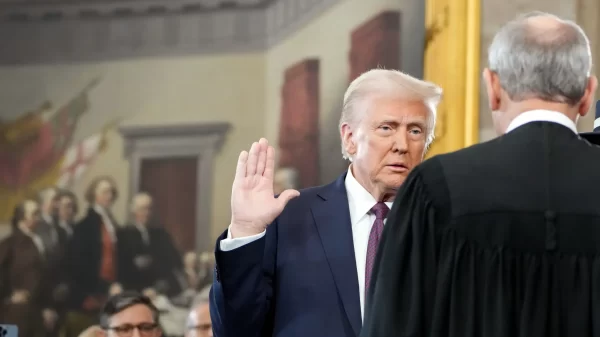By Rep. Darrio Melton
In politics and in life, there is seldom a “silver bullet” solution. Panaceas and cure-alls are typically the talk of snake oil salesmen, while public policy is frequently grounded in realms of give-and-take and cost-benefit analyses.
Alabama’s budget crisis has been no different. There have been a number of solutions on the table, each with a costly drawback in exchange for a budget cure–except one.
Governor Bentley has tried to raise taxes on working families and chose to close DMVs and state parks as punishment when legislators on both sides of the aisle failed to comply with his requests.
The Republican Supermajority has tried to cut our way out of the problem, putting Alabama precariously on the cusp of going from small government to no government.
If we look at why the Republican Supermajority’s plan won’t work, we see the closest thing to a silver bullet option Alabama has available.
See, the bulk of Alabama’s general fund budget goes two places: health care and prisons. Both of those services deal with more than dollars at the bottom line–they handily affect people’s lives.
Currently, the federal government is offering Alabama $1.24 billion in federal spending within our borders if we would opt-in to the Medicaid Expansion program.
Reports show a single stroke of the Governor’s pen authorizing this program could save 210 lives in 2016 and save the state $190 million in money we’re currently spending to care for uninsured Alabamians.
To put this in perspective, Governor Bentley recently closed 31 Driver’s License offices across the state to save a mere $100,000.
This $190 million in savings could be used to rebuild our roads and bridges, recruit industry to the Black Belt and rural Alabama, keep open state parks, or create small-business loans, which would provide quality jobs for Alabamians who are in desperate need of an opportunity to work, even beyond the 30,000 jobs that would be created in the healthcare industry.
With improved jobs, we see impacts that can’t be effectively captured individually. We see families being lifted out of poverty and children performing better in school. We see recidivism rates decrease in our criminal justice system and we see an overall lower crime rate in our communities. We see a brighter future for Alabama shaping up quickly on the horizon, all with a single stroke of the Governor’s pen.
While we as a state can afford to spend $2.2 million and millions more in tax credits to bring 200 jobs to North Alabama, the Governor refuses to consider accepting federal money to create 30,000 jobs and, more importantly, to save 217 lives.
The argument from the right is that the state will be expected to cover a portion of the costs in the next 10 years–that amount could range from $188 million to $217 million.
Don’t let them fool you: we’re saving $190 million simply by implementing the program. This means that we will, in fact, save money for the first 10 years, at which time we’ll be budget neutral with the added benefits of the $1.24 billion from federal spending, 30,000 new jobs, 200 lives saved every year, economically advanced families, improved education, decreased crime rates, lowered prison and criminal justice costs, and a brighter future for all of Alabama.
No, Governor, it’s not quite a silver bullet, but it’s pretty close. It just takes one stroke of your pen to expand Medicaid. Let’s do it.
Rep. Darrio Melton is a Democrat from Selma. He was elected to the Alabama House of Representatives in 2010 and currently serves as Chair of the House Democratic Caucus.






















































